Artistry dedicated to miniature masterpieces
Explore the pursuit to capture iconic stamp designs that survived over a century. Discover a passion that some collectors might find a bit extreme.
The KEVII ProjectIn 1901 an unlikely sculptor designed the stamp featuring King Edward VII (KEVII). A hundred years later it is still iconic among collectors. The KEVII Project is a fresh effort to capture the intricate work of ink on paper. It is a collector-artist obsession dialed up to 11.
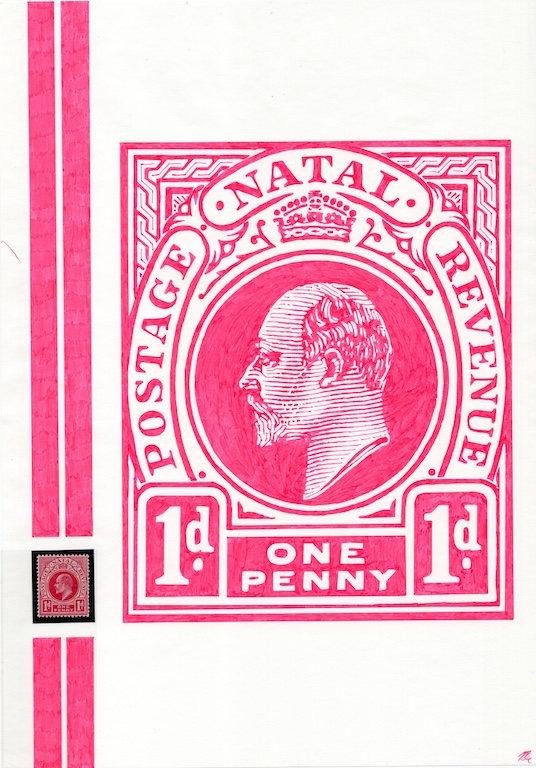
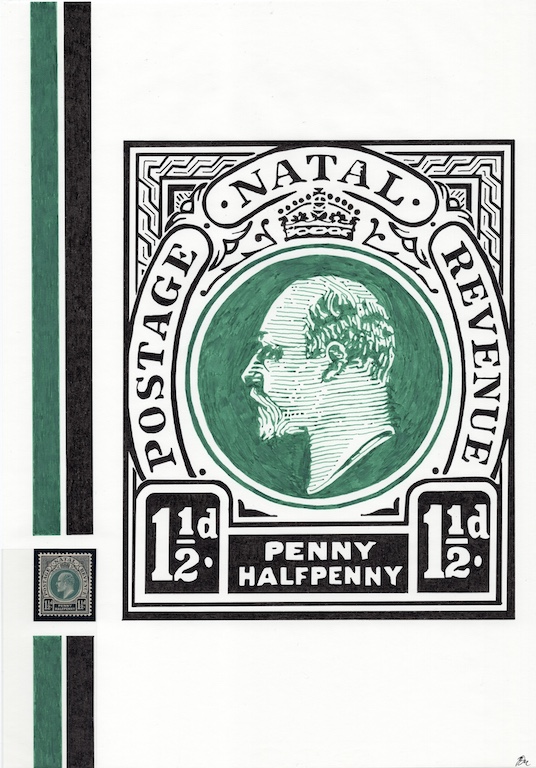
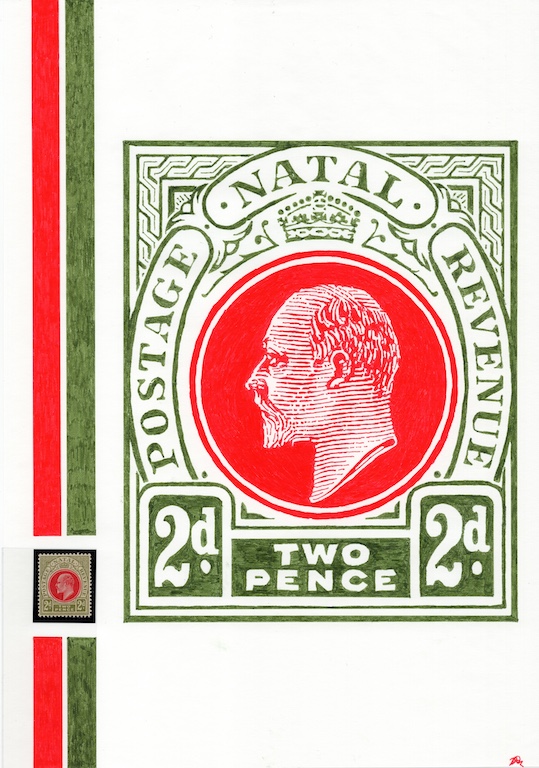
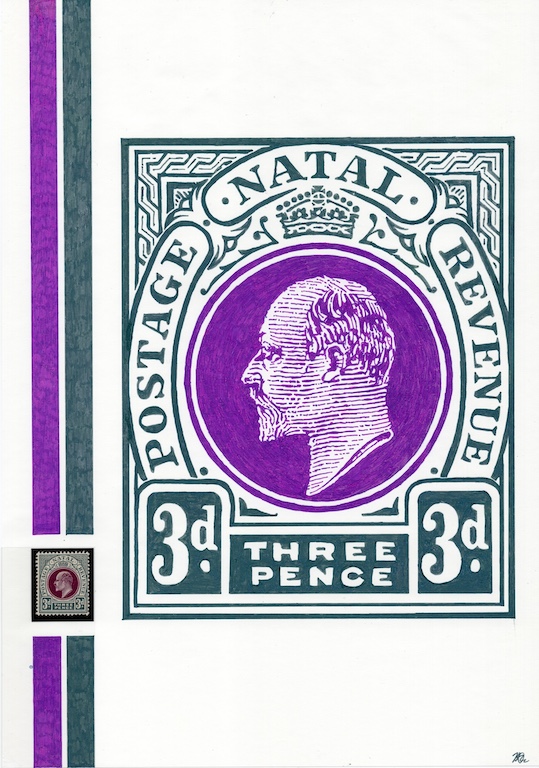
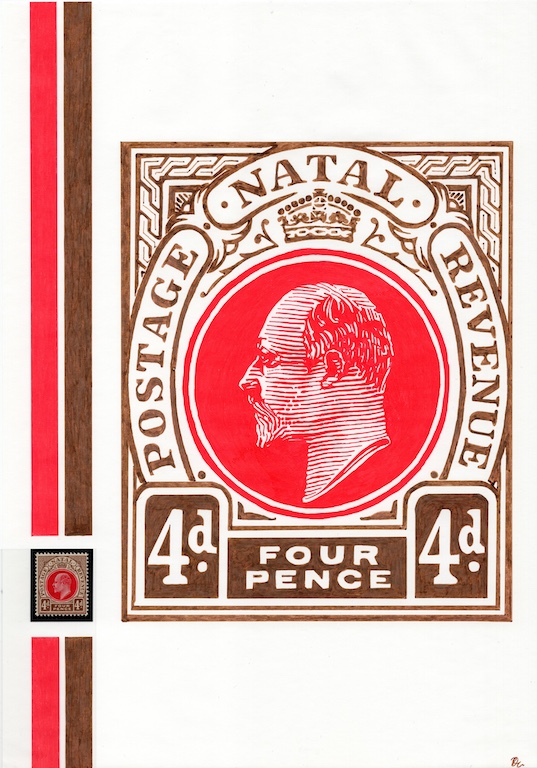
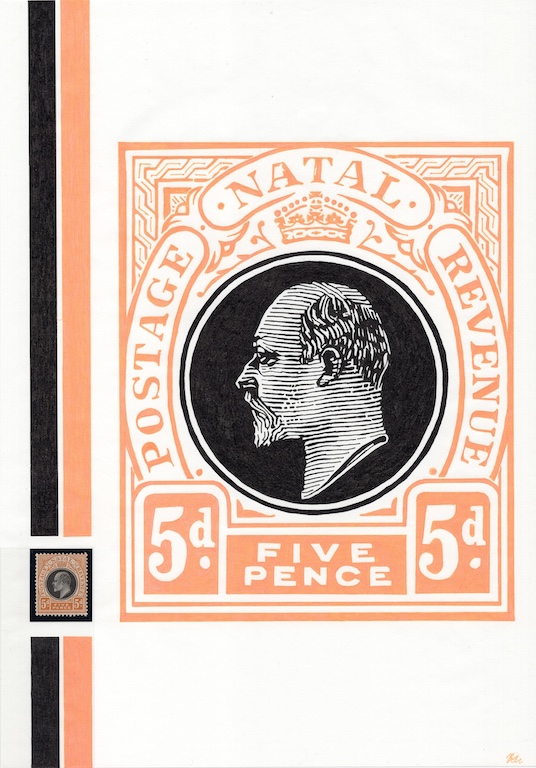
A unique clash of story, art, and design
Each art piece is inset with a pristine mint example of the original stamp. The drawing itself takes up more than 30,000 hand drawn ink strokes, recreating the original stamp die at 8.18x magnification. With details revealed, it is shocking to realize the care that went into engraving the original stamp plate, which measures just 21 x 24mm, or 0.82 x 0.94".
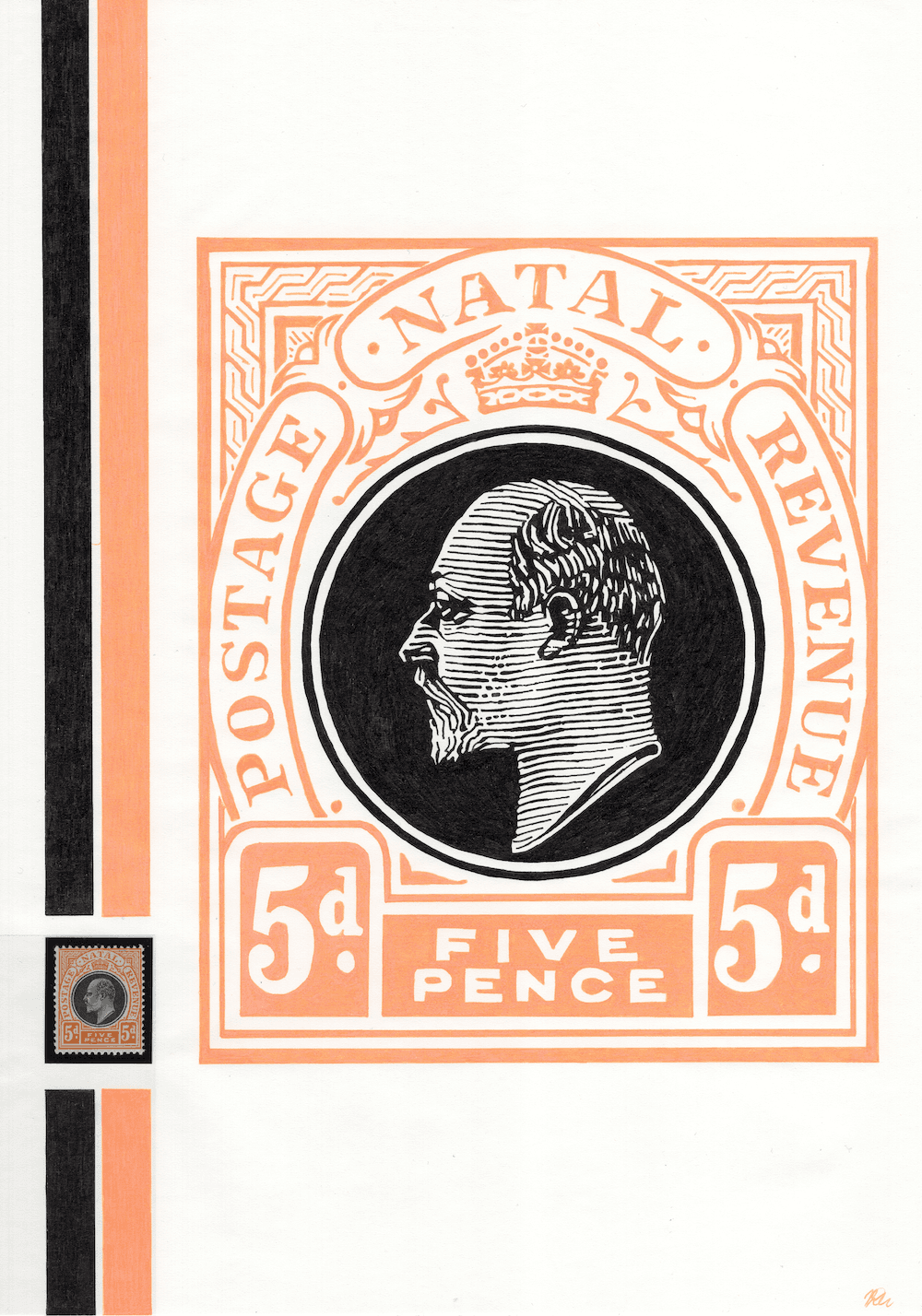
❝Then he started his engraving on the steel die. The slightest error meant some loss of likeness. Sometimes it would take him a whole day to cut only part of a line.❞— Emil Fuchs, With Pencil, Brush and Chisel, 1925.
Features of each piece
Each A4 art piece is a unique combination of design, art, stamp curation, technology, and manual handiwork.
30,000+ Pen Strokes
More than 30,000 hand-drawn pen strokes enhance the individual detail of each stamp using sub-0.5mm fineliners.
Pristine Original Stamps
A sleeved inset secures the mint condition stamp used to create the piece, featuring KEVII Natal stamps printed during 1902-1908.
Digital Enhancement @ 4,800 DPI
Ultra-high resolution scans reveal the fine details of the stamp imprints, redrawn on paper at 8.18x magnification.
Meticulous Composition
A layout designed to exhibit each piece with harmony and precision, incorporating vertical bands inspired by the original printing process.
Digital Preservation
An ultra-high resolution scan of each piece and stamp is tracked and preserved in digital storage in perpetuity.
Inspiration and Appreciation
Each piece is truly one-of-a-kind and represents great effort, celebrating inspiration and appreciation for things worth doing in life.
In pursuit of perfection
We separated flawless stamps that had remained attached for over 100 years. An act considered anathema by traditional collectors. But it's one of the few ways to get truly pristine individual stamps from this era. Somehow, it has to do with how plastic wasn't really available a century ago. Read more »
Captured in extreme definition
Scans bordering on the microscopic reveal intricate design and inking normally hidden to the naked eye. There are small imperfections, urging an admiration for a kind of perfection that is not absolute, but acceptably perfect.
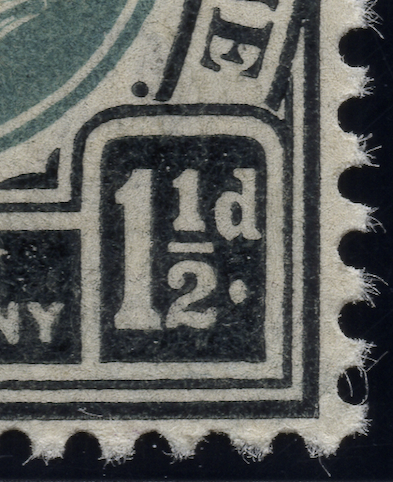
Precision layout and composition

Inspired by the original printing process, each piece exhibits dual vertical bars that frame the stamp.
Historically, borders were printed on sheets for color control and perforation alignment.
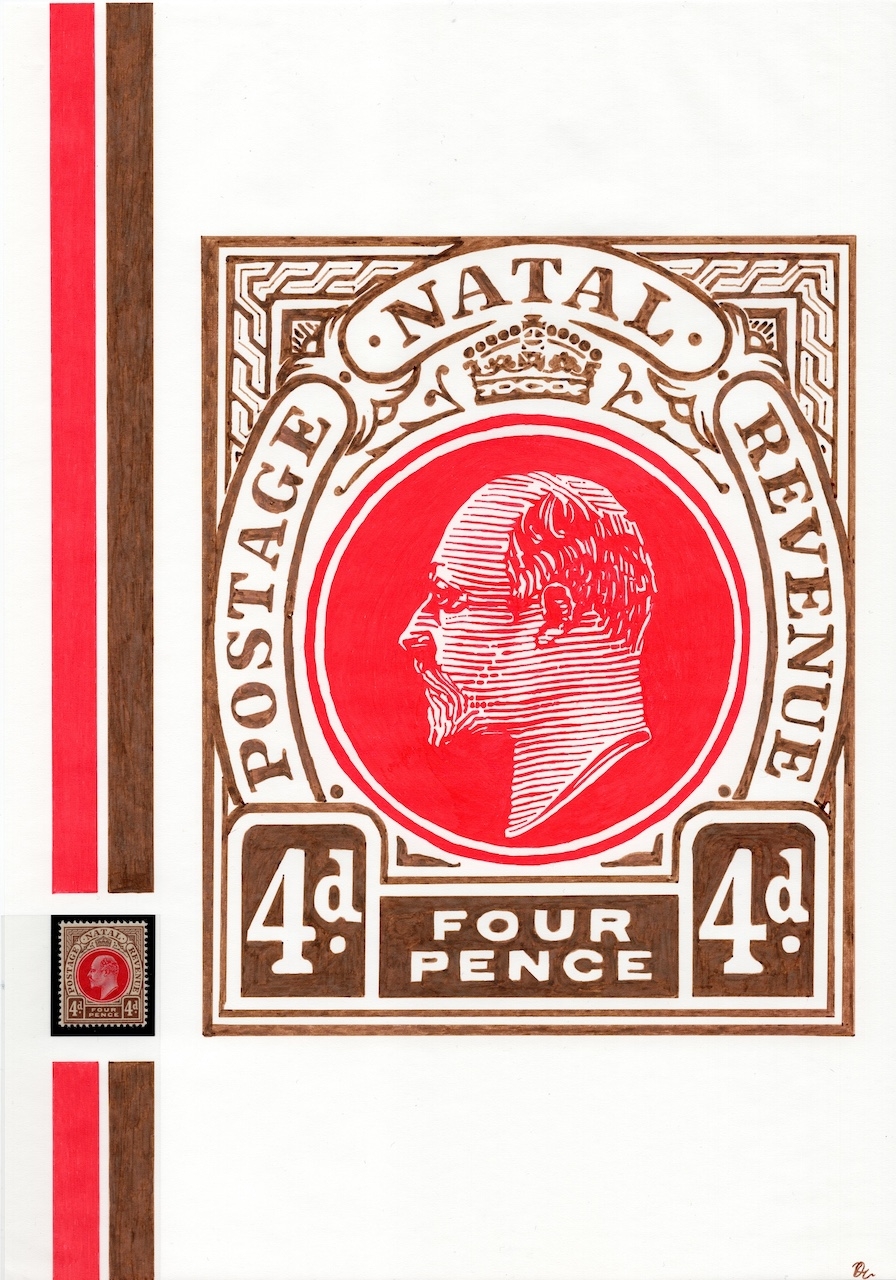
Borders run along the margins, outside the perforation area.
Purely functional and typically discarded in the past, intact margins are now valued for their aesthetic effect and insight into historical print techniques.
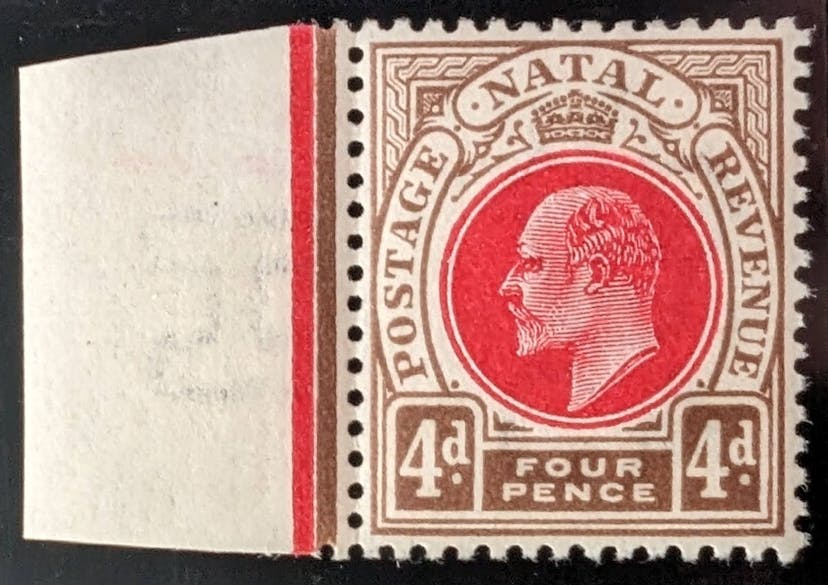
❝Which of the designs works best? Your author’s view is that Natal got the best deal. The design is simple and uncluttered and the arc acts to frame the Head (which is after all what a frame should do) ...❞— Simon Solomon, Journal of the Cape & Natal Study Circle #86, 2018.
Among stamps produced in the early 1900s, British colonies in Southern Africa had unique agency over design. Those designs and limited prints conferred a particular collectibility “unlike any other stamps of the world for interest and local printing flavor”.1
The designs originating from the colony of Natal remain especially iconic, and so became the subject showcased here.
1 A History of African Stamps & Collections, 2017. ↗

❝To design a postage stamp was not an unmixed pleasure. Soon after it came out, the world seemed to be composed of only critics—critics among the artists, the collectors, my friends, and of course among my enemies.❞— Emil Fuchs, With Pencil, Brush and Chisel, 1925.
To think, there was a time when collectors anticipated the release of a new stamp with the same excitement as a middle schooler opening Pokémon trading cards in 1998.
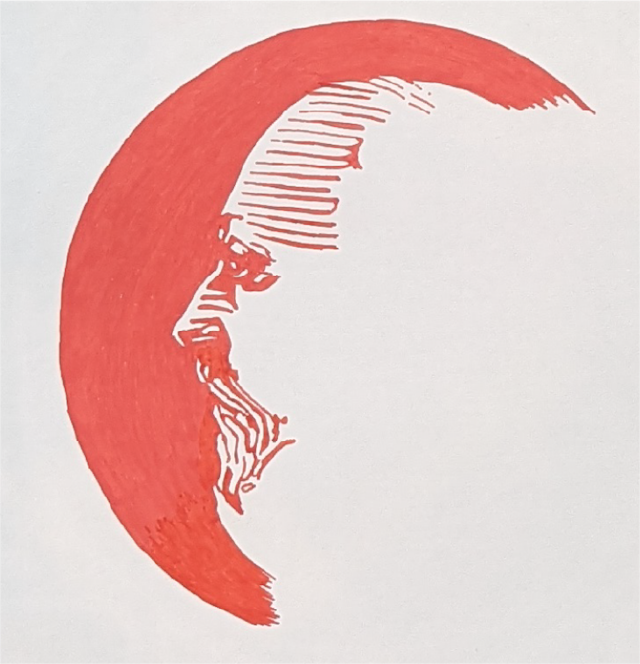
Technical behind the scenes
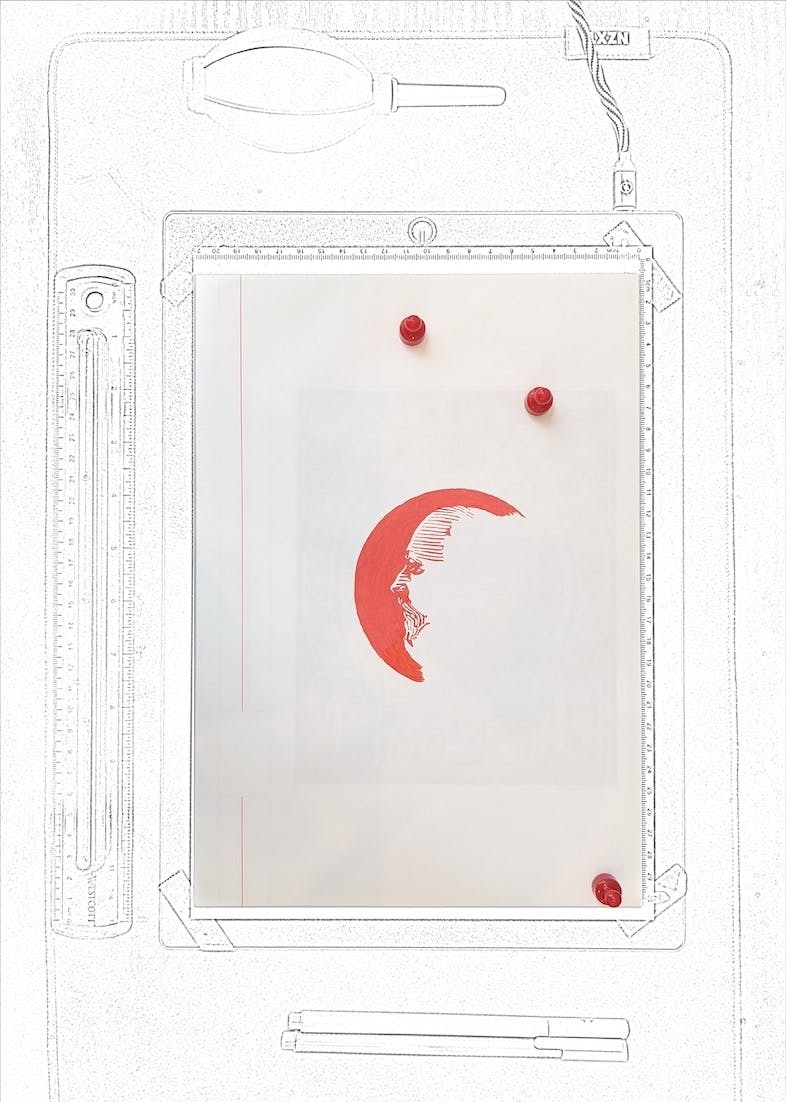
| Piece | Color and Ink | Remarks | Completion Date |
|---|---|---|---|
| 2s | Light Purple, Green | Initial experiment, Colored pencil, No stamp | May 2020 |
| 3d | Gray, Purple (2x layer, two tone) | MLH single | Oct 2021 |
| 2d | Olive Green, Red | MNH from 5x2 block, paper obverse | Nov 2021 |
| 5d | Light Orange (3x layer), Black (indelible) | MNH from 5x1 strip | Jan 2022 |
| 2d | Olive Green, Red | MNH from 5x2 block | Jul 2022 |
| 1½d | Sea Green, Black (indelible) | MNH from 2x2 block | Sep 2022 |
| 1d | Rose | MNH from 2x2 block | Oct 2022 |
| 4d | Light Brown, Red | MNH from 2x2 block | Nov 2023 |
| — | Planning in progress |
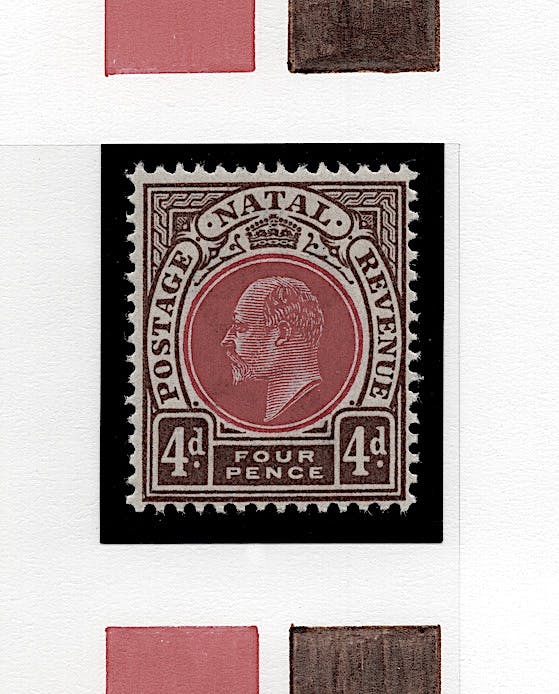
| A4 70 GSM Bleedproof Paper | 0.3mm Fineliner pens (black indelible ink) | Finger Grip ruler |
| A4 LED Tracing Light Pad | V39 Epson Scanner | Brother Monochrome Laster Printer |
| Two-Finger Drawing Glove | Rubber air blower | 120mm Cooling Fan |
| Paper Craft Cutter | 2-5/8 x 3-5/8" Plastic Sleeves (trimmed) | Hawid Black Stamp Mount Strips 63 x 210mm (trimmed) |
| Double-Sided Tape Squares | Good old fashioned cello tape | |
| Cotton Gloves | 4-3/4" Round Tip Nickel Tweezers |
$2,400 USD
Average raw cost to produce one piece
(labor, stamp value & curation, equipment)






About the artist
Rijnard van Tonder is a creative with a penchant for fine things and finer details. His mastery in most things technical blend with interests in stamps, art, and history to produce visuals worth looking at. Software engineer by trade, he holds a PhD in Computer Science from Carnegie Mellon University.

Good collections expand and evolve over time
We still need to talk about "Bertie" AKA King Edward. And the whole digitization thing. We're not done here yet.